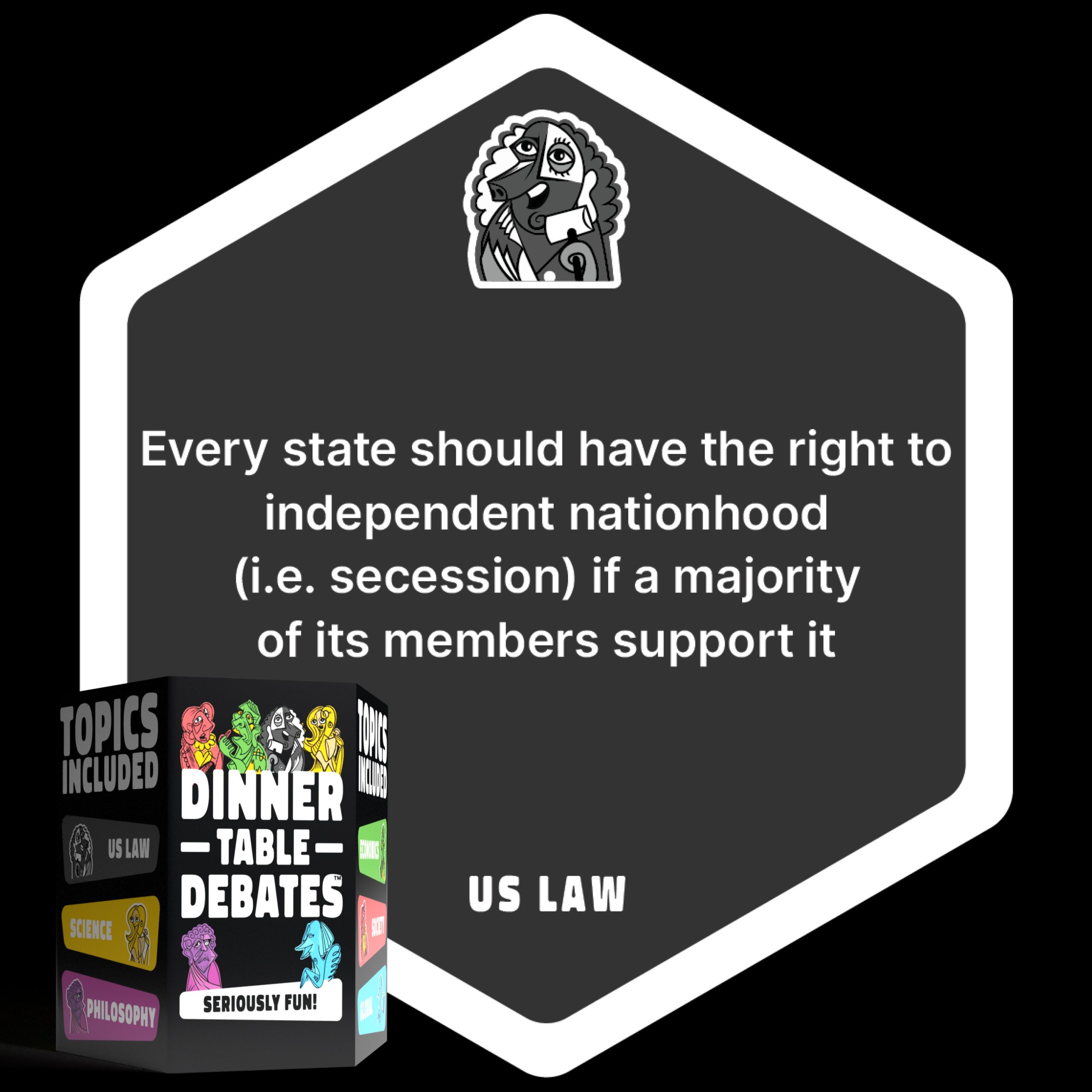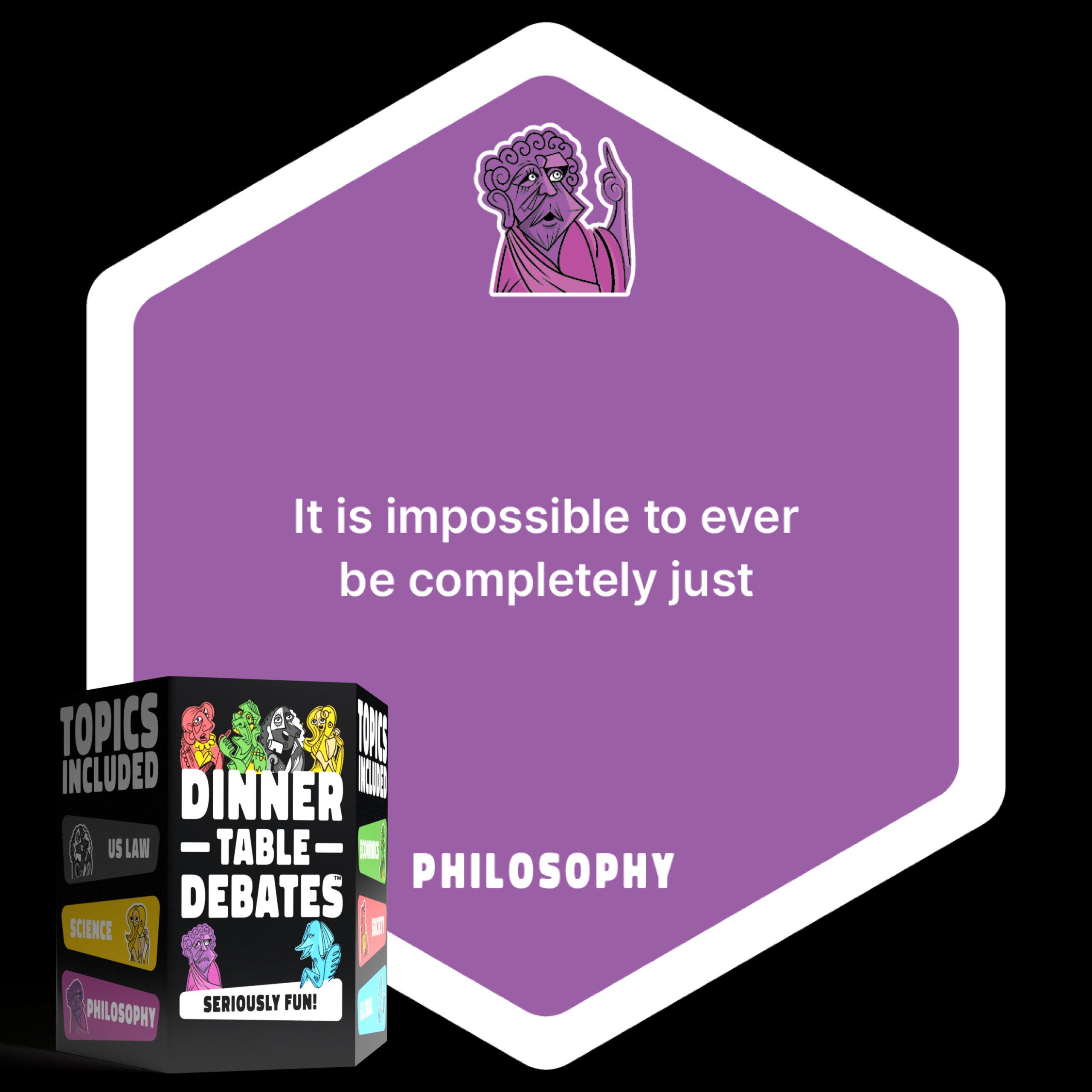How would it feel if the cost of every purchase you make stayed exactly as advertised, without that familiar boost at checkout? Picture a shopping trip where you see a $50 price tag and pay exactly $50. Have you ever wondered what it would be like if we eliminated sales tax entirely?
Welcome to your Dinner Table Debates Daily Deep Dive, where we explore real topics from our decks and give you everything you need to debate—in under 10 minutes. Today's topic is "Sales tax should be eliminated" and comes from our Full Size Essentials Collection deck. Let’s dig in!
Sales tax, typically a percentage of the retail price of goods and services, is collected by merchants at the time of sale and passed on to state and local governments. Sales taxes vary by state in the U.S., with some states like Delaware and Oregon having no sales tax, while others, such as Tennessee, charge over 9% on average. Sales taxes were first introduced in West Virginia in 1921 and became widely adopted during the Great Depression as a way for governments to raise revenue without directly taxing income. Today, these taxes contribute significantly to state budgets, helping fund public services, infrastructure, and education.
This topic is important because sales tax affects every purchase consumers make, impacting family budgets and spending power. Eliminating sales tax could change how governments fund services and shift economic priorities, directly impacting society and local communities.
Now, let’s debate.
Agree - Sales tax should be eliminated.
Disagree - Sales tax should not be eliminated.
Rebuttal to Agree: Although eliminating sales tax could help low-income families, it’s worth noting that the tax is a vital source of public funding. Some states address this issue by exempting basic necessities like groceries from sales tax, which helps reduce the burden on those who can least afford it without eliminating the tax entirely.
Rebuttal to Disagree: While it's true that sales tax contributes a substantial amount to state budgets, alternative tax strategies could make up for lost revenue without burdening consumers at the point of sale. Income-based tax adjustments, for instance, might ensure that higher earners contribute more fairly without placing the same financial stress on low-income individuals.
Today, we explored the topic of whether sales tax should be eliminated. We looked at both sides, considering how eliminating sales tax could ease consumer burdens and boost spending but also how it could reduce essential government funding and require alternative revenue sources. This debate touches on economic equality, government funding, and the broader impact of taxes on society.
Currently, some states and localities are experimenting with adjustments to sales tax rates, especially on items like groceries and medications, to reduce the burden on lower-income households. Additionally, discussions about replacing sales tax with other forms of taxation have been part of ongoing economic reforms in several states.
Want to dig into this topic even more? Well, when you’re playing Dinner Table Debates at home, you can have Agree set the stage and choose how to define the debate. This means they can outline the terms, context, and interpretation, creating a unique and dynamic conversation every time. Here are some ways that Agree could redefine this debate topic:
If you enjoyed our deep dive, you can debate this topic and many others by getting your own Dinner Table Debates deck at DinnerTableDebates.com. It's a unique game because every round starts with randomly assigning agree or disagree, then you pick the topic, meaning that you might be debating for something you disagree with or vice versa. But that’s the point! Stretch your brain, gain clarity, improve critical thinking and empathy, and have fun doing it! Save 10% on your order when you use the code PODCAST10. You can also join the debate on our Instagram and TikTok accounts at DinnerTableDebates. Get ready for some thought-provoking discussions that will challenge your assumptions and broaden your understanding of the world around you! Happy debating and remember, everyone is always welcome at the table.

SummaryIs there a place that feels like home to you—a place where your culture, values, and experiences are truly understood? What if that place...

When you think of justice, what comes to mind? Is it a fair trial, a system that treats everyone equally, or maybe even something...

Have you ever wondered what’s more important: the letter of the law, or the spirit behind it? Should judges stick strictly to the words...